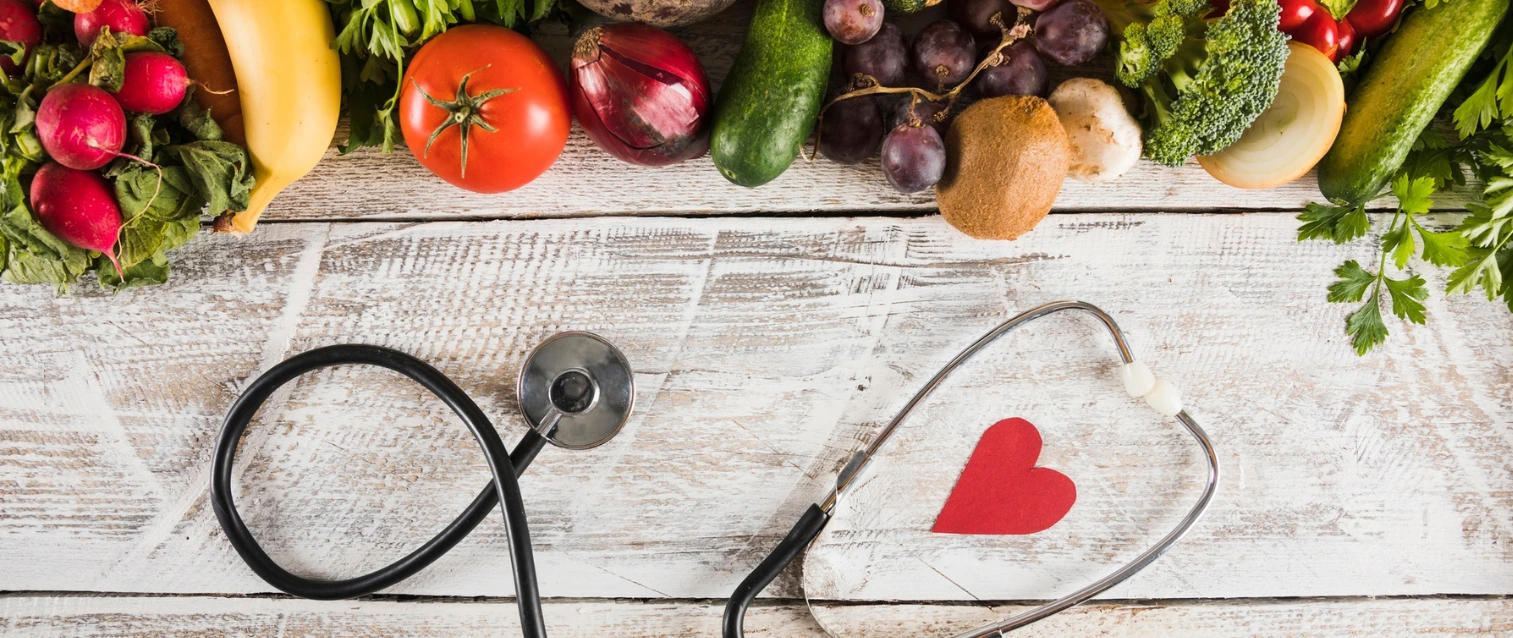Written By: Stephanie Joy Karl
Certified Nutritionist
As our world evolves, with advancements in medicine and healthier lifestyles, people are living longer than ever before. This increase in life expectancy has sparked interest in longevity science, focusing on how to maintain youthfulness and vitality throughout the aging process. Aging is a natural part of life, and modern society places a significant emphasis on beauty and attractiveness, which are often tied to how well we maintain our health and appearance as we grow older.
To retain our youthfulness, both men and women must prioritize their health through a holistic approach that encompasses nutrition, fitness, mental well-being, and quality sleep. Our skin acts as a mirror to our internal health; it reflects the state of our overall well-being and the aging process we undergo. This relationship between nutrition and skin health has intrigued scientists and healthcare professionals for centuries. Historical texts, such as the Ebers Papyrus from 1550 BC, already examined the consequences of a poor diet, such as scurvy, which plagued sailors lacking fresh fruits and vegetables.
In recent decades, research has highlighted how specific lifestyle, and dietary modifications can slow the aging process and diminish the risk of age-related diseases. This article delves into the impact of nutrition on skin health, with a focus on how understanding the role of dietary choices can lead to healthier aging. We will also address the importance of exercise and essential nutrients that promote healthy aging, rather than merely concentrating on anti-aging.
The Science of Aging Skin
Young skin is characterized by its remarkable ability to regenerate and heal efficiently. However, as we age, the body’s production of structural components essential for skin health—such as collagen and elastin—begins to decline. This slowdown manifests as visible signs of aging, including wrinkles, diminished elasticity, and loss of moisture retention. Additionally, the aging process affects other bodily systems: bones may weaken, tendons become more sensitive, teeth may deteriorate, and vision often worsens.
While external factors like UV radiation and pollution exacerbate skin aging, the role of internal mechanisms must not be overlooked. The increase in free radicals—unstable molecules that can cause cellular damage—serves as a critical marker for age-related health issues, including pre-diabetes. Fortunately, bioactive antioxidant compounds found in certain foods, like polyphenols, can counteract the destructive effects of free radicals. These antioxidants act as scavengers, neutralizing harmful molecules and promoting healthier skin.
Aging is a multifaceted process influenced by key biological factors, including cellular damage caused by reactive oxidative species and the shortening of telomeres—protective structures at the ends of chromosomes that are essential for cellular division. Understanding these mechanisms provides a pathway to explore how specific nutrients and foods can mitigate damage and support skin health.
The Impact of Nutrition on Skin Aging
As we delve deeper into the relationship between nutrition and skin aging, it is important to recognize that vitamins play a pivotal role in promoting a radiant complexion and enhancing overall well-being. Often overlooked in favor of topical products, proper nutrition forms the foundation of healthy aging.
While serums and creams may only address the visible signs of aging where applied, a more holistic approach involves incorporating essential vitamins into the diet, ensuring that internal tissues receive the support they need. The human body is remarkable in its ability to heal, provided it has access to the right nutrients, enzymes, and protective antioxidants to combat inflammation. Health starts from within, ultimately influencing both internal and external wellness.
Essential Vitamins for Youthful Skin
While countless vitamins exist, not all contribute equally to anti-aging benefits. Here are some of the most effective vitamins for promoting skin health:
1. Vitamin C: Known for its powerful antioxidant properties, Vitamin C helps combat oxidative stress, supports collagen production, and aids in skin healing. It is found in abundance in citrus fruits, berries, and leafy greens.
2. Vitamin E: Another potent antioxidant, Vitamin E safeguards the skin from free radical damage and helps maintain skin moisture levels. Foods rich in Vitamin E include nuts, seeds, and green leafy vegetables.
3. Vitamin A: This vitamin is vital for skin cell production and regeneration. Retinoids, derived from Vitamin A, are commonly included in topical treatments for their ability to reduce fine lines and enhance skin texture. Foods like carrots, sweet potatoes, and spinach are rich sources of Vitamin A.
4. Vitamin D: Essential for various bodily functions, Vitamin D plays a crucial role in skin health by regulating cell turnover and providing anti-inflammatory benefits. The body produces Vitamin D in response to sunlight, and it can also be found in fatty fish and fortified dairy products.
5. B Vitamins: B vitamins, especially B12 and B6, contribute to healthy skin by aiding in the formation of red blood cells and maintaining moisture levels. Foods such as whole grains, eggs, and meat are abundant in B vitamins.
Incorporating these vitamins into daily routines, whether through diet or targeted supplementation, can mitigate the signs of aging and promote long-lasting health. However, to maximize benefits, it is essential to combine these nutrients with quality topical treatments, creating a comprehensive anti-aging strategy.
Lifestyle Factors Supporting Healthy Aging
Beyond nutrition, specific lifestyle choices play a significant role in promoting healthy aging and slowing down its effects:
1. Regular Exercise: Physical activity not only supports a healthy weight but also boosts circulation, delivering essential nutrients to the skin while promoting a natural glow.
2. Avoiding Smoking and Excessive Alcohol: Smoking accelerates skin aging by narrowing blood vessels and reducing blood flow. Excessive alcohol consumption can dehydrate the skin, contributing to a dull appearance. Avoiding these substances can have drastic positive effects on skin health.
3. Quality Sleep: Sleep is crucial for overall recovery and regeneration. During sleep, the body undergoes repair processes, including skin cell regeneration, making it essential for youthful skin.
4. Stress Management: Psychological stress can lead to the release of cortisol, a hormone that may harm skin and accelerate the aging process. Techniques such as mindfulness, yoga, and meditation can help reduce stress levels.
Conclusion: A Holistic Approach to Skin Health In conclusion, understanding the intricate relationship between diet and skin health reveals that a proactive approach to nutrition can play a transformative role in promoting healthy aging. By emphasizing the importance of specific vitamins, adopting healthier lifestyle habits, and recognizing the significance of internal wellness, we can cultivate radiant skin and enhance overall vitality.
While topical products undoubtedly provide benefits, the true secret to youthful skin lies in a well-balanced diet and healthy lifestyle choices. With advancements in nutritional science, we have the knowledge and tools to fight signs of aging more effectively. Embracing a holistic strategy that combines nutrient-rich foods, exercise, and self-care practices ultimately paves the way for lasting wellness—both internally and externally.
By embarking on this journey towards better skin health, we can not only enhance our physical appearance but also improve our overall quality of life as we age.
Stay confident, glow with science!
References:
1. McHugh D and Gil J (2018) Senescence and aging: Causes, consequences, and therapeutic avenues.J Cell Biol; 217(1): 65-77.
2. Bolke L, Schlippe G, Gerb J and Voss W (2019) A Collagen Supplement Improves Skin Hydration, Elasticity, Roughness, and Density: Results of a Randomized, Placebo-Controlled, Blind Study. Nutrients; 11(10): 2494.
3. Sharifi-Rad J, El Rayess Y, Abi Rizk A et al (2020) Turmeric and Its Major Compound Curcumin on Health: Bioactive Effects and Safety Profiles for Food, Pharmaceutical, Biotechnological and Medicinal Applications. Front Pharmacol; 11.
4. Liochev S I (2018) Which Is the Most Significant Cause of Aging? Antioxidants (Basel); 4(4):793-810.
5. Schagen S.K et al (2012). Discovering the link between nutrition and skin aging.D ermato-Endocrinology; 4(3): 298–307
6. Fujiki H, Watanebe T, Sueoka E et al (2018) Cancer Prevention with Green Tea and Its Principal Constituent, EGCG: from Early Investigations to Current Focus on Human Cancer Stem Cells. Mol Cells; 41(2): 73-82.
7. Keiko Unno and Yoriyuki Nakamaru (2021) Green Tea Suppresses Brain Aging. Molecules; 26(16):4897.
8. Yaku K, Okabe K, Gulshan M et al (2019) Metabolism and biochemical properties of nicotinamide adenine dinucleotide (NAD) analogs, nicotinamide guanine dinucleotide (NGD) and nicotinamide hypoxanthine dinucleotide (NHD). Scientific Reports vol 9: 13102.
9. Pizzino G, Irrera N, Cucinotto M et al (2017) Oxidative Stress, Harms and Benefits for Human Health. Oxid Med Cell Longey; 8416763
10. Nady Braidy et al (2020) NAD+ therapy in age-related degenerative disorders: A benefit/risk analysis. Exp Gerontol; 132:110831.
11. Januszewski J, Forma A, Zembala J et al (2024) Nutritional Supplementation for Skin Health-A Review of What Should Be Chosen and Why. Medicia (Kaunas); 60(1):68


